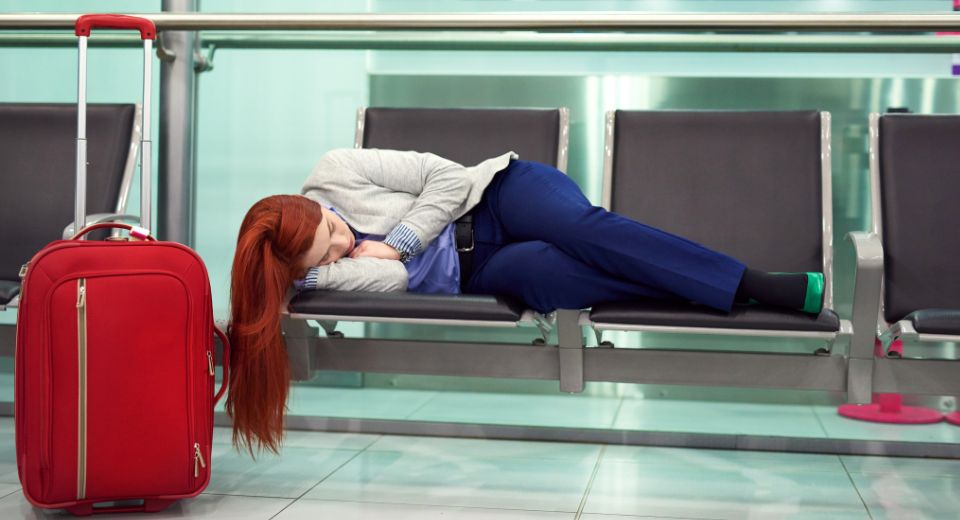
Author: Alyssa Sota, Manager
We have all experienced the feeling of not being “in sync” when we arrive at our destination after crossing time zones when we travel, but do we have to suffer? What can we do to avoid the dreaded jet lag and be ready for work and/or play?
First, before traveling, shift your bedtime to match the new time zone. Studies show that traveling eastward is more difficult as our inner body rhythms are more resistant to shifting earlier. So if you are traveling east, go to bed 1-2 hours earlier for several days before you leave. Traveling west, shift later. Also, avoid excessive sleep deprivation or overnight flights if you can, as these factors will add to your jet lag.
Then, during your flight, be sure to hydrate well with water, and avoid alcohol and caffeine. Sleep during your flight at the appropriate new bedtime if traveling eastward in the evening. Conversely, stay awake until your new bedtime if traveling westward beyond your old bedtime. Bring eye covers if you need to sleep on flights. Light is a strong cue for wakefulness, and you want to be sure light does not hit your eyes/eyelids. If you have trouble sleeping on flights or in new locations, then you may need one of the following sleep aids that are reviewed below.
Melatonin is an endogenous (produced by the body) hormone that promotes sleep, and it has been proven that an additional exogenous (oral) dose can help alleviate jet lag. The over-the-counter dose that is most effective with the fewest side effects is melatonin rapid release 5 mg to be taken about 30 minutes before the new local bedtime, for up to 4 nights. Melatonin should not be taken with alcohol or other sedatives.
If melatonin is not helpful, or hangover effects are experienced, a lot of travelers prefer taking a prescription of benzodiazepines such as alprazolam. Alprazolam in a 0.5 mg dose is prescribed for both jet lag and flight anxiety. It initiates the sleep cycle at the right time, alleviates anxiety, and does not have a hangover effect due to its very short half life. It is an addictive medication when taken in larger doses, and must be used very sparingly. Alprazolam should not be taken with alcohol or other sedatives.
Finally, the most popular prescription for jet lag is zolpidem in 5 mg or 10 mg doses. It is a very effective non benzodiazepine hypnotic, and it ensures most people a full 8 hours of sleep in a new time zone. Most people who take zolpidem feel refreshed and only take it for 1 or 2 nights. A small percentage of people cannot tolerate the nonbenzodiazepine hypnotic medications as they can cause amnesia, sleepwalking, and nightmares. Zolpidem should be taken only when you are ready to stop all activities to avoid sleepwalking. Zolpidem should not be taken with alcohol or other sedatives.
After arriving, eating and exercising on schedule in the new time zone helps to synchronize your body and mind with the new zone. The first few days the bowels are bloated from the lower cabin pressure and might not move regularly. Regular exercise restores regular bowel movements. Exercise also promotes better quality sleep, but limit exercise to the morning hours for a boost, like your coffee or tea, and enjoy your trip!
The information provided is for general interest only and should not be misconstrued as a diagnosis, prognosis or treatment recommendation. This information does not in any way constitute the practice of medicine, or any other health care profession. Readers are directed to consult their health care provider regarding their specific health situation. Marque Medical is not liable for any action taken by a reader based upon this information.

